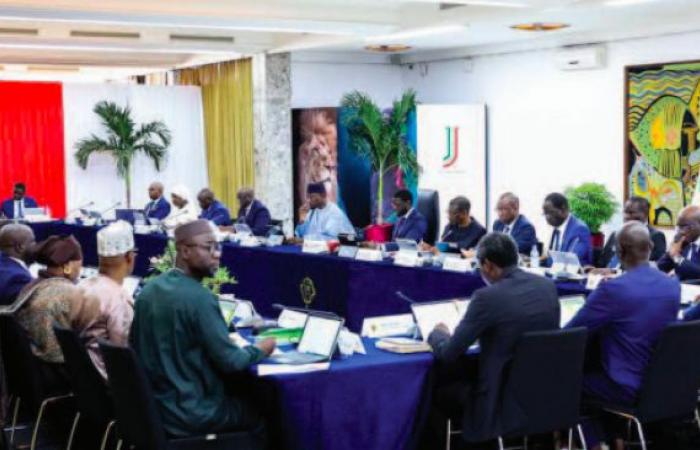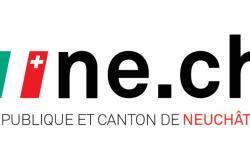Senegal is in the grip of a profound administrative change. Recent political changes have rekindled a heated debate on the impartiality of civil servants and the role of the Administration in society. Accusations of politicization of the State, made in particular by the press, have highlighted the tensions between the desire for rupture and the need to preserve an effective and neutral Administration. As the new regime seeks to make its mark, questions are multiplying regarding the selection criteria for public officials and the consequences of these choices on the quality of services provided.
The question of impartiality within the Senegalese public administration was recently relaunched by the media, in a political context marked by tensions. The accusations against certain civil servants have reignited the debate on their role and their independence. As a new regime aims to bring about change, divergent opinions collide, often tinged with resentment and manipulation.
Recently, the media raised an outcry by designating several leaders of the energy sector as “figures of the Macky Sall system”. This denunciation aroused both applause and virulent criticism. Supporters of the new administration, particularly those of the Pastef party, welcome the desire to separate the supporters of the past from the new dynamics necessary for the construction of a new Senegal.
On the other hand, others consider this policy of “purification” as dangerous for the proper functioning of the Administration.
For Pastef’s supporters, the time is no longer for cohabitation with those who have, in the past, been perceived as obstacles to the implementation of new governance. They argue that the Public Administration must be composed of personalities who deeply believe in the new political directions. This position reflects a stated desire to clean up the administrative landscape, so as to no longer leave room for those who could slow down initiatives deemed necessary for the development of the country.
With this in mind, Pastef activists emphasize the need for radical change, saying that the past choices of certain civil servants, particularly those who served the previous regime, must be re-examined.
Far from constituting a call for a witch hunt, this is an approach seen as essential to establishing resolute trust between the people, the government and the Administration.
However, this approach, although it is supported by a significant part of the population, raises questions about its implications. The systematic exclusion of civil servants based on their past can generate a climate of distrust within the state apparatus, harming the continuity and efficiency of public services.
Criticisms are emerging, particularly around the question of whether the effectiveness of services can truly be based on political affiliations or whether it should not rely more on the competence and integrity of the agents in place. Recent achievements in the energy sector bear witness to the fact that many senior officials have performed their duty loyally, regardless of political affiliations.
For some less demanding and partisan activists, this approach is not intended to establish a witch hunt, but rather to guarantee a dynamic and efficient Administration, capable of responding to current challenges. The selection of civil servants should be based on merit, competence and professional commitment.
By doing so, the State can not only strengthen its functioning, but also restore public confidence in its Administration.
Consequences of impartiality in the Administration
The Senegalese administration has long been seen as a bastion of continuity, transcending political changes. Civil servants, whether senior executives or simple agents, have often adapted to the needs of different regimes.
However, the arrival of Pastef initiated a paradigm shift: those who do not share the values of the new regime often find themselves excluded, which constitutes a worrying trend. Fary Ndao, a committed actor, shared his concern about this trend, arguing that the Administration must remain a common heritage, at the service of all, regardless of political affiliation.
In an open letter addressed to the Minister of Energy Birame Soulèye Diop, inspector Abdoulaye Sylla denounces the ad hominem attacks of which professionals in the sector are victims. He argues that the designation of certain civil servants as “unfriendly” because of their past links with the Macky Sall regime is not only unfounded, but also constitutes a threat to the integrity of the Administration. These accusations, in his opinion, are more about denunciation than true critical analysis.
For some citizens, the rise of the irascible discourse of certain media and activists highlights a worrying phenomenon. Baseless denigration aims to create a climate of fear and distrust.
To this end, it is essential, for the former, to remember that journalism must be a tool for raising awareness and not an instrument for destroying reputations. Press regulatory bodies such as the CNRA and Cored must take a close interest in these abuses to preserve Senegalese democracy.
The debate on the integrity of public functions
The debate over the integrity of public servants is complex. Some citizens argue that Minister Birame Soulèye Diop makes his decisions based on the competence and experience of his collaborators, regardless of their political past. In this sense, each civil servant, whether under the aegis of an old or a new regime, must be evaluated on their results and their loyalty to the State.
For this civil registrar who served for 25 years with several mayors of different regimes, it is imperative to recognize that among civil servants, there is a majority of apolitical agents, dedicated to their work and who are not affiliated with any political party. ”These professionals strive to serve the Administration with loyalty, whatever the regime in place. Their commitment to public service is often based on a strong professional ethic and a sincere desire to contribute to the development of the country. They embody an essential link in the continuity and efficiency of the Administration, thus reflecting true impartiality in the exercise of their functions.
He therefore believes that the question of competence within the Administration remains crucial. ”It is undeniable that certain positions have been filled on the basis of political considerations, often to the detriment of efficiency and performance. With this in mind, it becomes necessary to reassess the qualifications of agents who, due to their recruitment based on political quotas or partisan affiliations, do not meet the requirements of their functions. These individuals, who lack the skills necessary to manage strategic responsibilities, must be replaced.
In short, renewal based on efficiency and competence must go hand in hand with recognition of the dedication of apolitical civil servants who constitute the backbone of the Senegalese Administration. The balance between dynamic navigation towards performance and respect for public service values will be decisive in building an Administration serving all Senegalese people, independent of political influences.






